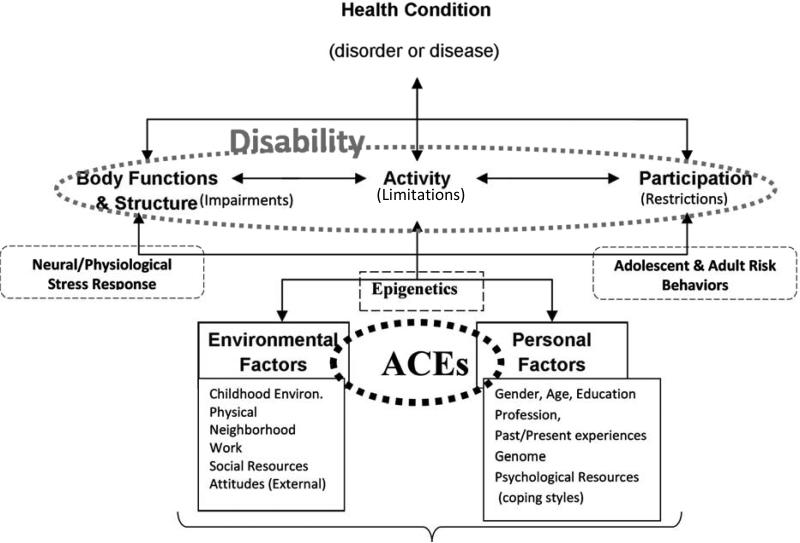Figure 3. Potential Mechanisms by which Adverse Childhood Experiences (ACEs) may affect disability using the International Classification of Functioning, Disease and Health (ICF) Framework.
Adverse Childhood Experiences and childhood environment are environmental factors in childhood, but may be considered personal factors in adulthood where they are past experiences. The interaction of ACEs with other childhood environmental factors and personal factors may through epigenetic mechanisms lead to persistent changes in the neural/physiological stress response. They may adversely affect adult environmental factors such as social resources, as well as personal factors such as educational attainment and psychological resources. ACEs are highly associated with adult risk behaviors which can cause alterations in body functions and structure, and also adversely affect participation and activity.

